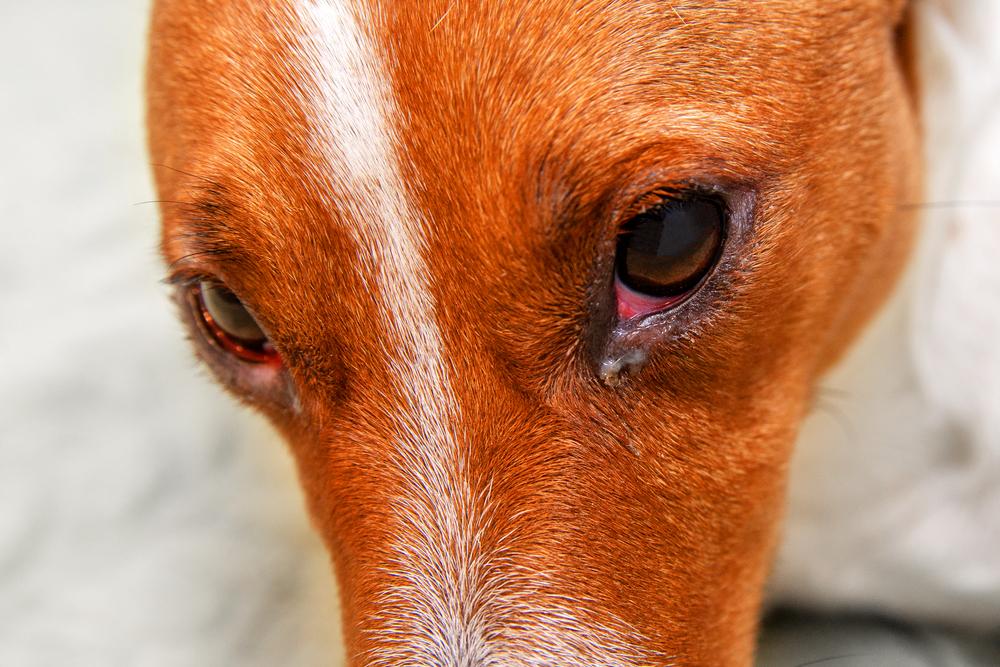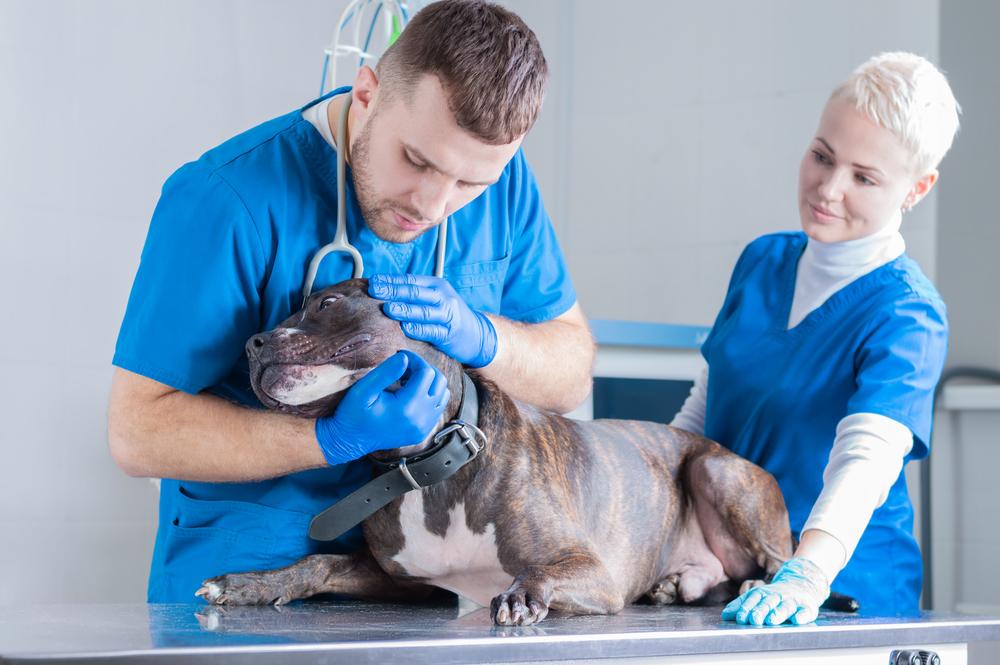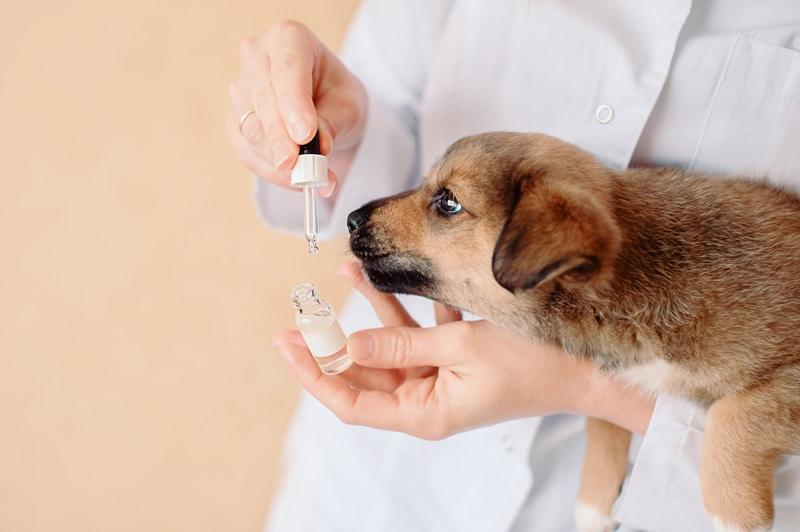How to treat conjunctivitis in dogs (canine pink eye)
Every dog worth his (or her) collar knows how to use their big, expressive eyes to win over humans.
All it takes is one strategic look to get what they want – especially when pork ears or liver snaps are involved!
Most of the time, your furry pal’s eyes are clear and bright as the moon.
However, pay attention if Scruffy ever stares at you with red, weepy eyes. A painful condition called canine conjunctivitis could be to blame (it’s like pink eye).
Thankfully “canine pink eye” is fairly easy for vets to treat with prescribed medication, which usually leads to a full recovery.
Please be mindful that untreated conjunctivitis in dogs can cause severe damage to your pet’s eyes, so book an appointment with your vet straight away.
In some cases, eye irritation may be a symptom of a more serious condition, such as glaucoma or cancer – but your vet can run a series of tests to get to the bottom of this.
Table of Contents
Conjunctivitis in dogs (canine pink eye or red eye)
Conjunctivitis in dogs occurs when the thin membrane covering the eyeball and eyelid becomes inflamed. This membrane, called the conjunctiva, has the vital role of protecting eyes from inflammation. When the membrane is inflamed, there’s usually a lot of irritation and discomfort for your pup.
The condition is also known as canine red eye or canine pink eye, and it strikes at any age. It’s not too different from the conjunctivitis that we humans sometimes get. In the same way that “pink eye” can spread from human to human, untreated conjunctivitis in dogs can also travel from one pet to another.
You can even catch it from your dog. However this doesn’t happen much, since canine conjunctivitis is usually caused by non-contagious allergies, rather than bacterial infections.
Phew!
At any rate, it’s always a good idea to practice good hygiene after handling animals, and keep your pets separated until you’ve seen your vet (this means separate food and water dishes too).

Canine conjunctivitis symptoms
Schedule an appointment with your vet if you notice any of these signs in your four-legged companion:
- Red or pink eyes (hence the name “canine red eye”)
- Swollen eyelids
- Crusty eyelids
- Red tissue emerging from the bottom eyelid
- Watery eyes
- Rapid blinking or squinting
- Clear, yellow or green discharge from the eye
- Pawing or scratching eyes
- Rubbing their head on the floor to try and reach their eyes
Untreated conjunctivitis in dogs can lead to severe pain and complications, including blindness and systemic infection in extreme cases. This is why it’s always better to be safe than sorry and seek veterinary advice as soon as possible, even though most “canine pink eye” cases are mild.
What causes conjunctivitis in dogs?
Canine conjunctivitis has many different causes, such as:
- Allergies: the most common culprit behind pink eye in dogs (it’s a different story for cats, where bacteria is largely to blame).
- Contagious bacterial or viral infection: rare in dogs, thankfully, since it can take a few weeks to recover.
- Trauma or injury to the eye: a scratch is enough to trigger the condition.
- Environmental factors: examples include mould, dust and even grass seeds getting trapped in the eye.
- Underlying eye diseases such as glaucoma, tumours of the eyelids, dry eye disease, ulcerative keratitis and anterior uveitis.
Did you know that particular breeds are more likely to get conjunctivitis, due to having a predisposition to eye problems?
Thanks a lot, genes.
These breeds include: Bulldogs, German Shepherds, Pugs, Poodles, Retrievers and Cocker Spaniels. Having said this, any breed can develop the condition, so stay vigilant even if your dog isn’t on this list.

How to treat conjunctivitis in dogs
The recommended treatment always depends on what triggered the inflammation.
Your vet will conduct a thorough examination of your dog’s eyes. They may schedule further tests to rule out any underlying conditions, if there’s reason to suspect deeper complications behind the scenes.
In most cases, canine pink eye is simply caused by allergies, bacteria or injury.
Treatment is usually straightforward, and may include any of the following:
- Topical antibacterial ointment, steroids or antihistamines
- Oral steroids, antibiotics or antihistamines
If your dog can’t stop scratching his eyes, consider putting him in an Elizabethan or Buster collar, until the treatment has time to work its magic.
He may feel like a prisoner, but it’s for his own good.
Ask your vet to show you the best way to administer eye drops that have been prescribed. It’s daunting enough for us humans to drop liquid into our own eyes, let alone attempt to do the same for a scared dog who doesn’t know what’s happening!
Finally, if you happen to have any canine medications lying around from the past, don’t keep using these beyond the recommended time frame. You could cause more harm than good, by administering medication that your vet hasn’t prescribed for the current problem.
On the same note, never use human eye drops on your dogs, as this could aggravate the cornea and cause blindness.

Potiki dog insurance for canine conjunctivitis (and other issues)
Aussies with dog insurance usually claim between $100 and $300 for red-eye consultations and treatments (one of our most popular claims).
It’s worth considering pet cover to help you pay for vet bills, which can get very high because there are no government subsidies.
For Potiki customers, we actually pay most of the bill directly to their vet. Our customers only need to pay the small gap that isn’t covered by their policy.
If you sign up with us, all customers get access to Potiki Perks#. Potiki Perks# comes with the free Potiki Perks app offering exclusive offers, 2-for-1 deals, and up to 20% off in categories like dining, activities, shopping, travel, and more. You will also have access to myPetPass™** which unlocks extra support and savings on everyday pet essentials such as online vet care, discounted pet prescription medication and savings on premium pet food.
- Get a quick Potiki quote to find out what your premium will cost for one year.
- Submit payment if you’re satisfied with that amount (email us on [email protected] with any questions).
- Log into your personal portal to select items for your Potiki Perks package, which will be swiftly delivered to you.
- Lodge a claim if you need help paying vet bills for unexpected sickness or injury.


